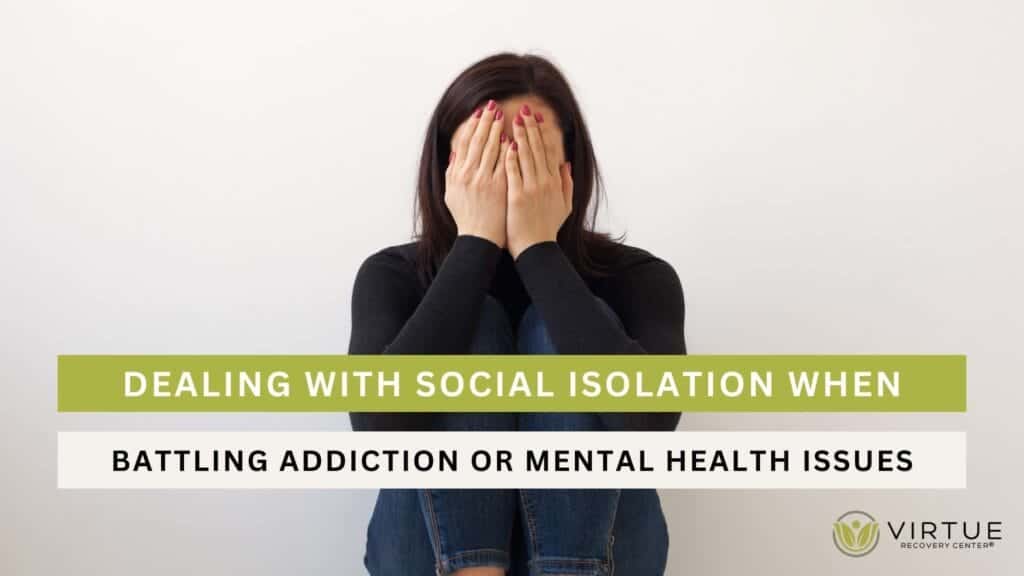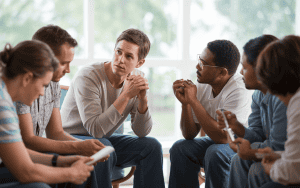Key Takeaways
- Understanding the impact of social isolation on addiction and mental health
- Strategies to combat isolation and foster meaningful connections
- Importance of professional help and support networks in overcoming isolation
Introduction
Isolation from others can be a sizeable barrier in the process of recovery from addiction or the management of mental health problems. It could cause loneliness and despair, worsen existing problems, and thus hinder the healing process. The following article will provide some concrete tips for dealing with social isolation and make suggestions about how people coping with addiction or mental health issues can establish social support and connections.
Understanding Social Isolation
Social isolation reflects psychological conditions when people are separated from other people in a physical and emotional sense. In the context of addiction and mental health, isolation can be both a cause and a consequence. Psychologically, it can bring only stress and depression, creating ‘a cycle’, which only makes the recovery unbelievably hard.
The Risks of Isolation
In addition to other mental and cognitive disorders, the feeling of loneliness may further depression and cause the individual to reach the bottom of the barrel. It often leads to harmful coping strategies, such as substance abuse, as individuals may feel they are facing their struggles alone. Recognizing the risks associated with isolation is the first step in mitigating its effects.
Strategies to Overcome Social Isolation
- Reach Out for Support: Work with your friends you know and care about- keeping in touch through video calls even when apart. Such groups will contribute to telling your story to others, reducing your feeling of being isolated.
- Get Involved in Community Activities: Join community events or volunteer for community service. This, in turn, bonds you with others and is a source of meaning and significance in your life, decreasing the loneliness rate.
- Consider Getting a Pet: The volunteer will be able to have a great companion who has a lot of understanding and will even give undying support to him as long as he can listen and get to know the animal’s needs. Pets provide limitless love and endless inspiration to us.
- Rediscover Hobbies and Interests: Devoting yourself to hobbies you enjoy or even searching for new hobbies that you will always have something to share with other people with the same hobby is very useful.
- Seek Professional Counseling: With the clinicians’ help, you can explore and find the deepest roots of your problems, the actual cause of your loneliness. Alongside that, they will play a role in promoting business networking strategies.
Utilizing Technology to Stay Connected
Technology provides many instruments for fighting social isolation. You can stay in touch with others through online forums, video calls, and social media. Moreover, some sites provide virtual support groups and therapy sessions, which makes help available like never before.
Building a Personal Support Network
Having an opportunity to do things that are very helpful to you to withstand everything in a personal manner is very valuable. It can be family, friends, or even counselors, and those who voluntarily become the ones you can always talk to.
Maintaining Routine and Structure
The other physical function of this point is a transition period for the patients to be on their own, regain the healing themselves, and ultimately live everyday life to the fullest. The public perception of the role of civil society is what is essential to recovery as it facilitates the needy people to seek help such as addiction recovery and mental health recovery.
Conclusion
Dealing with social isolation requires a proactive approach to foster connections and seek support resources. Remember, you are not alone in this journey; help is available. If you or someone you know is struggling with addiction or mental health issues compounded by isolation, Virtue Recovery Chandler is here to help. Contact us at 866-338-5779 to learn how we can support you or your loved ones.
FAQs
How can I tell if I’m experiencing social isolation?
Signs of social isolation include feeling lonely or detached, lacking companionship, feeling left out, and being isolated even when around others.
What are the first steps I should take if I feel isolated?
Reach out to someone you trust, whether a friend, family member, or professional. Acknowledging feelings of isolation is the first step toward addressing them.
Can social isolation affect my physical health?
Yes, long-term social isolation can lead to serious physical health problems, including an increased risk of heart disease, stroke, and immune dysfunction.
What is the definition of social isolation?
Social isolation is when an individual lacks a sense of social belonging, social engagement, and fulfilling relationships with others. It involves the physical state of being apart from others and the emotional experience of feeling disconnected from the community and support networks.
What are the symptoms of social isolation?
Symptoms of social isolation can include feelings of loneliness and sadness, lack of interest or withdrawal from normal social activities, increased feelings of stress or anxiety, disturbances in sleep patterns, and changes in weight or appetite. People may also need to improve in personal hygiene or self-care.
What are the effects of social isolation?
The effects of social isolation can be severe, impacting both mental and physical health. Mentally, it can lead to increased risks of depression, anxiety, and low self-esteem. Physically, it may contribute to a higher incidence of cardiovascular problems, decreased immune function, and, in extreme cases, premature death. Social isolation can also impair cognitive function and increase the risk of dementia in older adults.
What is the difference between social isolation and loneliness?
Social isolation and loneliness are related but distinct concepts. Social isolation refers to the objective lack of social contact and interactions. In contrast, loneliness is the subjective feeling of isolation, regardless of the actual level of social contact. In other words, one can be socially isolated without feeling lonely and lonely even in a crowd.
Does social isolation lead to depression?
Yes, social isolation can lead to depression. The lack of social support and reduced social interactions can increase feelings of sadness and emptiness, leading to depression. Chronic isolation even triggers changes in the brain associated with depressive states, making it a significant risk factor for the development of major depressive disorder.
Is there a correlation between social isolation and social media usage?
The correlation between social isolation and social media usage is complex and can vary widely among individuals. While some studies suggest that excessive use of social media can lead to feelings of isolation and depression, mainly if it replaces face-to-face interactions, others find that social media can help reduce feelings of isolation by connecting people with similar interests and providing a platform for communication and support.
Can social isolation cause anxiety?
Yes, social isolation can cause anxiety. The lack of regular social interaction and support can lead to increased feelings of stress and worry. The uncertainty about social relationships and a perceived lack of control over one’s social environment can exacerbate feelings of anxiety and fear, especially in unfamiliar or previously comfortable social situations.








